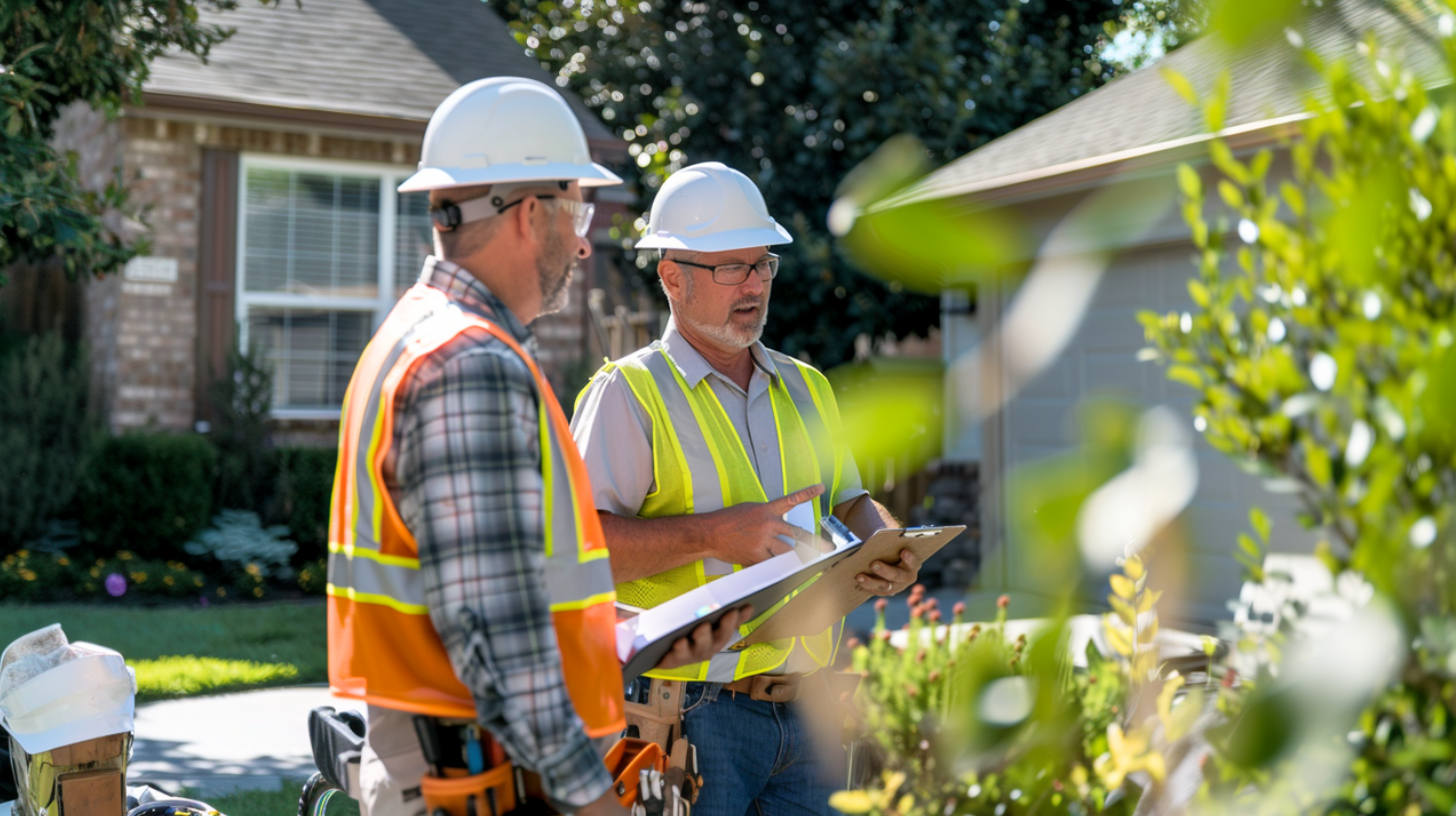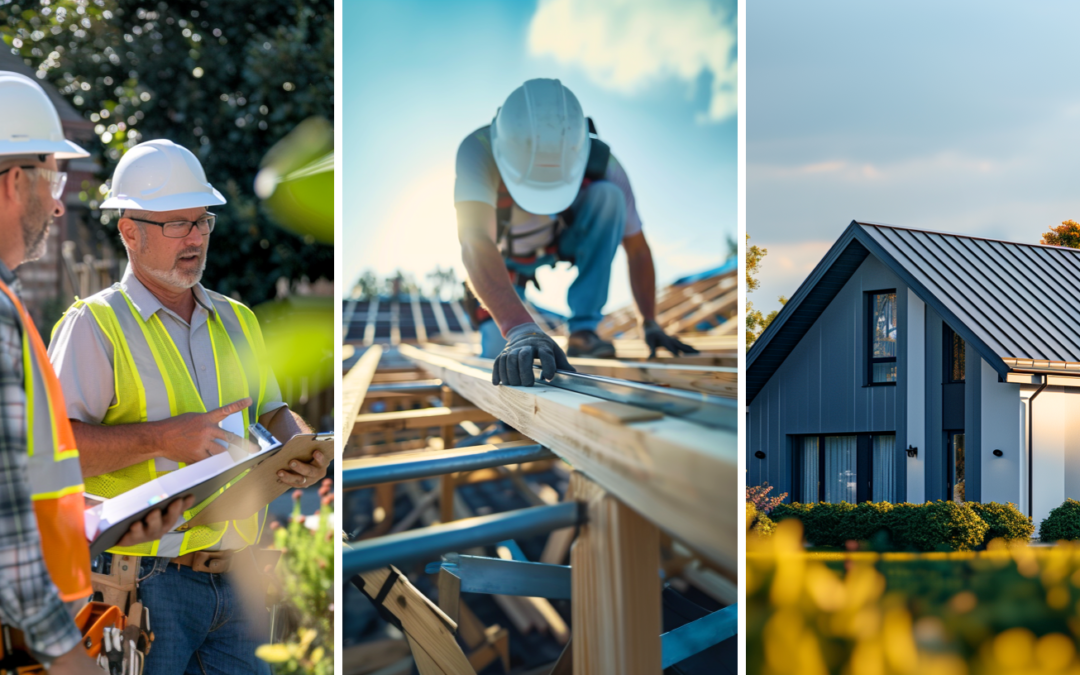Understanding Duration in a Roofing Contract
A clear duration helps set expectations for completion and protects the interests of both the contractor and the client. Knowing how long you’ll be committed is essential for planning and budgeting. Moreover, many contracts include a cancellation clause allowing either party to terminate the agreement, often within 72 hours, without incurring fees.
This option provides peace of mind, allowing clients to reconsider their decision after signing the contract. Understanding these aspects of a roofing contract ensures that homeowners are fully aware of their commitments and can make informed choices about their roofing projects. By paying attention to the duration, expiration date, and cancellation provisions, you can safeguard your interests throughout the construction process.

Duration - Factors Influencing Contract Duration - Sky Roofing Construction & Remodeling
Factors Influencing Contract Duration
Considering these elements, you can ensure a smoother contracting process and make informed decisions aligning with your renovation goals. This understanding becomes vital when discussing the implications of the duration in a roofing contract, as it affects scheduling, budget considerations, and, ultimately, satisfaction with the finished product.
Scope of the Project
Outline the timeline for the roofing project, highlighting start and completion dates along with significant milestones for each phase, such as material delivery, installation, and final inspection. By clearly defining these components, homeowners can better anticipate the duration of their roofing project and ensure a smoother process. Recognizing the comprehensive scope of work provides clarity and fosters informed decision-making, ultimately leading to a successful roofing experience.
Weather Conditions
For instance, wet conditions can hinder the installation process, while extreme temperatures can alter the curing times of materials. Understanding these weather patterns helps contractors and homeowners set realistic expectations for the duration of the roofing contract. Additionally, considering the local climate when planning and scheduling roofing work can improve project efficiency and ensure the longevity of the finished roof.
By acknowledging the impact of weather conditions on project duration, homeowners can better prepare for potential delays and make informed decisions regarding their roofing needs. This awareness helps adjust the installation method if necessary and plan for possible roof replacements, ensuring a smoother and more efficient roofing project.
Availability of Materials
Clients will be promptly notified of any material availability issues to ensure transparency and facilitate informed decision-making. This proactive communication not only helps manage expectations but also allows clients to weigh alternatives, ultimately impacting the duration term of the project. Moreover, understanding the payment terms associated with material procurement and potential changes can further aid financial planning and avoid unforeseen expenses.
Recognizing how crucial material availability is can significantly influence your planning and ensure a smoother construction process. By staying informed about these factors, homeowners and building owners can make better decisions and achieve a more successful roofing project.
Labor Availability
By being aware of these factors, home and building owners can better manage their expectations and plan accordingly. An informed understanding of labor availability can not only aid in selecting a reliable contractor for roofing services but also help anticipate any potential fluctuations in the project’s duration, ensuring a smoother roofing experience.

Duration - How Duration Affects Project Planning - Sky Roofing Construction & Remodeling
How Duration Affects Project Planning
Duration affects project planning, including the significance of project timelines, how they influence cost management, and the advantages of adhering to an established schedule. A well-planned completion time is essential for staying within budget and ensuring that resources are used efficiently. By understanding this, homeowners and building owners can make informed decisions, leading to a more successful roofing experience.
Scheduling and Resource Allocation
The timeline specified in a roofing contract, including the specific period, directly impacts productivity, as it dictates how tasks are prioritized and when resources will be deployed. Proper scheduling ensures that all aspects of the project, including installation requirements, are timed appropriately, minimizing delays and optimizing labor and materials.
Resource allocation becomes more efficient when the duration is well-defined, allowing for better workforce availability and equipment usage planning. By recognizing how duration influences project planning, homeowners and building owners can make informed decisions that enhance the overall efficiency of their roofing projects, leading to timely completion and increased satisfaction.
Impact on Budget and Costs
The duration directly influences financial implications, affecting operational expenses and homeowners’ overall budget for the project. A well-defined timeline can mitigate unexpected costs by efficiently scheduling materials and labor, minimizing delays that could escalate expenses and labor costs.
Conversely, an extended duration can lead to higher operational costs, complicating the financial landscape of the roofing endeavor. Thus, grasping how the duration of a roofing contract intertwines with budgeting and cost management empowers homeowners to make informed decisions, ensuring their projects stay within financial limits while maintaining quality and efficiency. Understanding these aspects is key to achieving a successful roofing project without unnecessary financial strain.
Coordination with Other Contractors and Stakeholders
This coordination fosters an organized approach to project scope management and ensures all contractors are aligned with the schedule and budget constraints. A well-defined duration allows roofing professionals to synchronize their efforts with those of electricians, plumbers, and other specialists, minimizing delays and miscommunications that can derail a project.
Furthermore, by establishing clear timelines, home and building owners can better anticipate the progress of their roofing project and make informed decisions, ultimately enhancing overall efficiency and satisfaction throughout the renovation process. Understanding how duration influences contractor coordination can empower homeowners to navigate their roofing contracts confidently.

Duration - Managing Changes to Contract Duration - Sky Roofing Construction & Remodeling
Managing Changes to Contract Duration
Furthermore, it’s essential to include a clause stipulating the consequences if the contractor fails to commence work by the agreed-upon dates; this can render the contract void in some jurisdictions. A detailed completion timeline also helps set clear expectations for both parties. Dispute resolution mechanisms should also be outlined to address any conflicts arising during the project, ensuring that issues are resolved efficiently and fairly.
By being aware of these elements, homeowners can better navigate their rights and responsibilities regarding the timeline, ensuring a smoother roofing experience while safeguarding their interests.
Tips for Home and Building Owners
First, thoroughly review the contract to ensure all details are clearly stated, including start and completion dates. Understanding the timeline helps set expectations for your roofing project and provides peace of mind, knowing everything is clearly outlined.
Secondly, don’t hesitate to ask questions. Clarifying any doubts about specific terms or potential delays with experienced contractors will help you feel more confident in the contractor’s plan.
Next, it’s crucial to monitor the progress throughout the project. Regular check-ins will keep you informed and allow you to address any issues as they arise. Keeping communication lines open with your roofing contractor ensures transparency and accountability.
Finally, stay engaged and informed by requesting updates on any changes to the timeline or workflow. Seeking legal advice can help you better understand your rights and obligations under the contract. A well-informed homeowner is better positioned to handle any adjustments and ensure the project stays on track. These steps can enhance your contract evaluation process and secure a successful roofing endeavor.
Navigating Duration for Successful Roofing Projects
Understanding the duration of your roofing contract is essential for a smooth and successful project. By knowing how factors like weather, material availability, and labor can impact the timeline, you can make informed decisions and ensure your renovation stays on track. Contact Sky Roofing Construction & Remodeling (https://skyroofingconstructiontx.com/) at (210) 942-9797 for personalized advice and a comprehensive consultation. Our team is ready to assist you in navigating your roofing needs and achieving a successful project outcome.
Willis Vachon is a seasoned contributing writer for Sky Roofing Construction & Remodeling, specializing in the technical and safety aspects of roofing construction. With a keen eye for detail and a passion for ensuring quality and safety in every project, Willis provides valuable insights that help both professionals and homeowners make informed decisions about their roofing needs.

